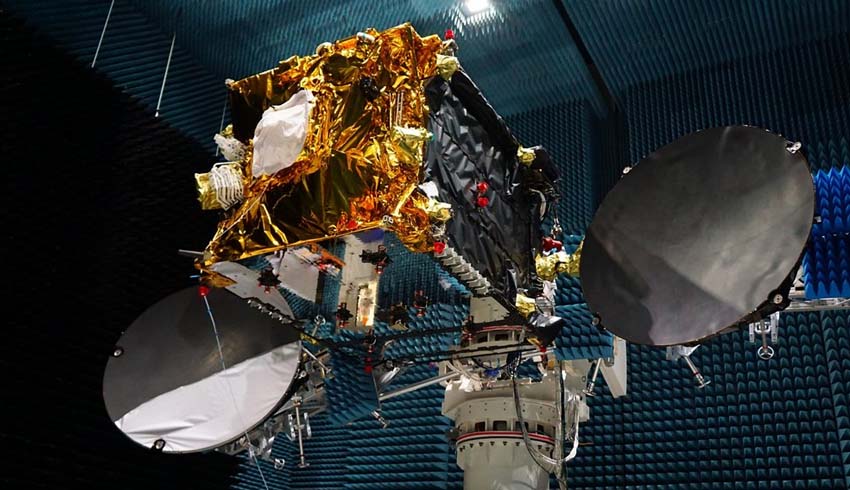The “Skynet Service Delivery Wrap (SDW)” contract is one of the four main components of MOD’s £6 billion Skynet 6 Programme, which deliver the next generation of defence connectivity and satellite communications.
“This new contract will support the continued delivery of new SATCOM technologies and enable the MOD to build inhouse skills through close cooperation with the supplier, thus increasing UK and Defence’s capability” said Major General Richard Spencer on February 15, as HMG announced the contract.
The Skynet 6 programme updates the UK’s existing Skynet 5 infrastructure, which comprises four satellites built under a private finance initiative (PFI) contract. Skynet 5 features a hardened X-band constellation of satellites and accompanying ground network for Beyond Line of Sight communications to the UK military. It is operated by Airbus, which is also contracted to build the first satellite of Skynet 6; scheduled for launch in 2025.

(That satellite, Skynet 6a, passed its critical design review stage in July 2022. Richard Franklin, MD of Airbus Defence and Space UK said this represented “tangible proof that in partnership with Defence Digital… we are firmly on track and making great progress on this flagship programme. We now have more than 400 people working on the project at our key sites in Stevenage, Portsmouth and Hawthorn. We are building SKYNET 6A with its unique military communications payload entirely in the UK and we currently have more than 45 small to medium sized enterprises and subcontractors helping to make sure we remain on target for launch in 2025.”)
Richard Spencer, director, intelligence and expeditionary services at Defence Digital, said today’s contract was “a big step forward for the MOD’s future SATCOM capability, providing long term management and control of the Skynet constellation and the supporting ground segment. This milestone has been delivered by the Defence Digital SATCOM team who have worked tirelessly with colleagues across government and industry.”
See also: US agencies tells users to deploy ‘independent encryption’ across commercial satellite comms. It’s not that easy...
As well as the funding allocated on SKYNET 6 over this decade, HMG has also established a new Space command (£1.4 billion), including a National Space Operations Centre and plans further investment in the UK’s Surveillance and Reconnaissance satellite constellation, according to public data on the plans.
As MOD’s last annual report puts it: “The UK will invest around £5 billion over the next 10 years in our military satellite communications programme, delivering through the Skynet 6 programme and we will develop a constellation of small Earth Observation (EO) and Intelligence, Surveillance and Reconnaissance (ISR) satellites with supporting architectures and invest in both earth observation data infrastructure and hardware development capability. Good progress is being made across all these programmes,” it added.
The Ministry of Defence also plans to plough an “additional £1 billion in the Digital Backbone.”
“Digital investment will support Defence’s Transformation programme, migrating IT services to hyperscale multi-classification cloud, growing the skills and talent required to leverage battle winning technology, improving our cyber defences and exploiting advances in synthetics for training and decision support” it said.
The House of Lords’ International Relations and Defence Committee quotes Air Marshal Phil Osborn, former Chief of Defence Intelligence, as saying space has been “taken for granted” for years, and should be considered a “contested environment… [the UK must] recognise that the space environment will be contested; it is so important that if you are in a conflict with somebody, they will want to deny you the advantages that it brings”.









